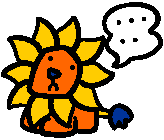
----------------------------------------------------------------- #71 動物園がなければどうやって野生動物の事を見たり、知ったりすれば いいのですか? -----------------------------------------------------------------
野生動物に関する本当の、そして完全な知識を得るためには動物が
自然環境の中で生活している姿を観察する必要があります。動物園で
捕われの状態にある動物の行動は概してひどくゆがめられたものにな
ります。
教育的な目的という点で動物園の代わりになるものはいくつかあり
ます。
テレビでは自然をテーマとしたドキュメンタリー番組が定期的に数
多く放映されています。ビデオでもそうしたものを観る事が出来ます。
公共放送の特別番組やディスカバリー・チャンネルの様なケーブル・
テレビからも野生に生きる動物に関する正確な情報を得る事が出来ま
す。
ナショナル・ジオグラフィックの様な雑誌にも写真入りのすばらし
い読み物があります。そしてもちろん、公共図書館は情報の宝庫です。
動物園の動物の多くは狭いおりやかごに閉じ込められる事で虐待を
受けています。それは不当だし残酷なことです。そうした動物の本能
や本来の行動は力ずくで抑圧されているのです。そんな状態でどうや
って野生動物の観察をしたり教育したりする事が出来ると言うのでし
ょうか?
JLS
すべて良きものは野生と自由の中にこそある
ヘンリー・デビッド・ソロー(随筆家、詩人)
参照:
#69、
#70
訳注)ここで紹介されている各種の情報源はアメリカのもの
です(もちろん日本にも数多くの情報源がありますが)




-----------------------
#71 How will people see wild animals and learn about them without zoos?
-----------------------
To gain true and complete knowledge of wild animals, one must observe
them in their natural habitats. The conditions under which animals are
kept in zoos typically distorts their behavior significantly.
There are several practical alternatives to zoos for educational
purposes. There are many nature documentaries shown regularly on
television as well as available on video cassettes. Specials on public
television networks, as well as several cable channels, such as The
Discovery Channel, provide accurate information on animals in their
natural habitats. Magazines such as National Geographic provide
superb illustrated articles, as well. And, of course, public libraries
are a gold-mine of information.
Zoos often mistreat animals, keeping them in small pens or cages.
This is unfair and cruel. The natural instincts and behavior of these
animals are suppressed by force. How can anyone observe wild animals
under such circumstances and believe that one has been educated?
JLS
All good things are wild, and free.
Henry David Thoreau (essayist and poet)
SEE ALSO: #69-#70